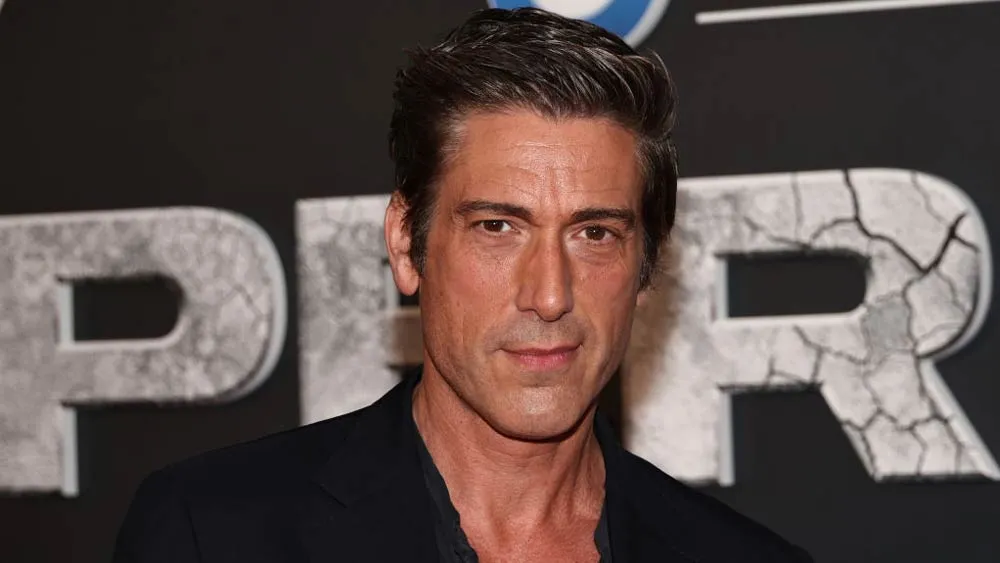June 28, 2010
Gay Thugs and Weak Sisters
Kilian Melloy READ TIME: 9 MIN.
The United States Supreme Court ruled 8-1 on June 24 that when people sign petitions to put ballot initiatives before voters, the First Amendment does not shield them from public disclosure. But a more specific question still lingers: how credible are claims that supporters of anti-gay measures have cause to be "frightened" into seeking secrecy and anonymity when they attempt to put rights-repealing initiatives on the ballot?
The New York Times, in a June 24 article, sketched out a thumbnail history of the questions raised by the case. Anti-gay activists in Washington State, under the rubric of a group called Protect Marriage Washington, took aim at a domestic partnership law that granted a broad array of protections and rights to registered same-sex families.
Those opposed to the measure derided it as the "everything but marriage" act, and sought to strip domestic partnership rights from gay and lesbian families in a 2009 ballot initiative similar to the one put before Maine voters that same election day, by repealing the law at the ballot box.
The Maine measure, which was heavily promoted by the Catholic Church and by anti-gay groups like the National Organization for Marriage--a key player in the successful campaign to pass Proposition 8 and strip gay and lesbian families of their then-extant right to marry in 2008--passed; the Washington referendum failed, and same-sex families in that state were allowed to retain their legal rights and protections.
But Protect Marriage Washington pursued a tactic that cast gays in a lawless and menacing light, while seeking to remove themselves from public accountability: they demanded the special right of not having to follow election laws, which required that the names of the anti-gay measure's supporters be made a matter of public record. To justify hiding from the light of public disclosure, the ballot initiative's backers pointed to claims that businesses and individuals who had supported Proposition 8 had suffered harassment and retaliation at the hands of gay thugs.
Let's recall 2008 and the days just after the nation was stunned at how California's voters had chucked gay and lesbian families under the bus. The legislative violence done to same-sex families set a terrifying precedent for minorities having their rights curtailed at the whim of the majority, but the anti-gay crowd, conscious of the power of spin, sought to put the onus of aggression onto the victims.
The post-Prop 8 demonization of gays as brutish and violent was near-instantaneous, starting in the days just after the gay community had been demoralized and angered by the passage of the anti-gay measure. Anti-gay online publications and bloggers scanned postings at gay sites, and cherry-picked expressions of anger in which enraged commentators had vented their anguish and fury by disparaging Mormons (who financed much of the anti-gay amendment's push) and racial minorities (who, one theory at the time had it, had gone to the polls in droves to vote for Obama and cast attack ballots on gay rights while they were at it).
The ugly commentary was nothing more than hurt, angry people sounding off, but the anti-gay crowd generalized such comments as indicative of what gays were like as a whole--threatening, violent--and demanded that the FBI investigate (so much for conservative Christians' treasured right to free expression--or is that another special right to be reserved for the straight elite and denied to queers?).
That early pattern of cherry-picking emotional, non-representational commentary and then spinning it as a truthful depiction of GLBTs in general was adopted for use when it came to citing instances of physical aggression by gays. Although more than 700 peaceful demonstrations took place around the country in the weeks just after Proposition 8 was passed, anti-gay websites and organizations worked to instill a popular perception that gays were rioting, vandalizing, and threatening people. Anti-gay pundits engineered the "gay thug" perception by playing up the extremely rare instances in which gays were goaded into displays of aggressive behavior.
In the push to demonstrate the violence with which gays threatened society, crucial details were glossed over: a clip was passed around on the Internet of an elderly woman having a styrofoam cross snatched from her hands and stomped to bits by several gay men (just a few out of a large crowd, but, the intimation went, the crowd as a whole was somehow unsavory and mean). But what was left out of the story was the fact that the woman had elbowed her way into the middle of a peaceful candlelight vigil.
Another story circulated by the anti-gay right concerned a group of Christians who were purportedly harassed and threatened by a mob in San Francisco's Castro district. But the fact that people in the Castro, a gay neighborhood, saw the group as invaders there to rub the faces of gays in their legal defeat was conveniently forgotten, and no one thought to ask why the group--which evangelized to gays on a weekly basis--brought along a video camera on that particular occasion, mere days after voters narrowly approved the anti-gay amendment following months of deeply divisive debate and vicious anti-gay ads that tarred marriage equality as a vehicle for the sexual violation of children.
Other stories seized on minor, isolated incidents and sought to exaggerate them into a false representation of all gays everywhere, as when a white man shouted a racist epithet at a black man at a gay rally (both men were there in protest of Proposition 8, but the anti-gay spin left that part out). Though few in number, such stories were repeated, distorted, and exaggerated so as to create an impression of marauding gays running riot through the streets of urban America. To take those stories at face value, you would have thought that America's cities were being engulfed in flames and showered in broken glass. Nothing of the sort was taking place, except in the fevered imaginations of the anti-gay movement.
The anti-gay right, having created the image of lawless, menacing gay thugs, then sought to harden the perception. The argument by the supporters of the Washington ballot initiative dovetailed with the defendants in a federal court case against Proposition 8, in that both cases saw the anti-gay side present the courts with claims of intimidation and harassment befalling Proposition 8 supporters.
Intimidation? Is that what we call boycotts now? Because that's mostly what was going on. Businesses that had supported Proposition 8 had no moral right to expect that gays would support them, but that didn't stop the bellyaching when the people whose lives had been trampled declined to shell out their hard-earned cash to their oppressors. And it wasn't like boycotts originated with gays; anti-gay Christians got there first, with boycotts against companies perceived to be gay-friendly such as Disney, McDonald's, and Pepsi Cola. An ad in a gay magazine or a Folsom Street Fair corporate sponsorship was enough to bring the weight of the anti-gay Christian right down on companies, as corporations like Ford and Miller Beer discovered. But for gays to boycott companies that funded a legal crusade against themselves and their families was, the Christian right declared, practically a form of terrorism.
And though stories circulated of individuals and churches suffering property damage by gay vandals, the vandalism in question was often minor--yard signs supporting the anti-gay amendment being defaced or stolen was a prevailing example--and the claim that the perpetrators were gay was often only a presumption. Moreover, opponents of Prop 8 also saw their yard signs stolen or defaced, though the anti-gay side never called attention to that fact. Nor did the anti-gay faction bother to acknowledge a far more serious example of violence and intimidation that took place against blacks the night that Obama was elected, when a black church in Massachusetts was burned. (The perpetrators were not gay.)
The anti-gay, mostly Christian tactic of promoting an image of themselves as the victims of unwarranted violence--while depicting gays as mindlessly raging, violent agents of bodily harm and chaos in the streets--worked: the pro-Prop 8 plaintiffs in the federal case convinced the Supreme Court not to allow the trial to be televised, a move that gay equality advocates bemoaned as a lost opportunity to educate Americans about the prejudicial motivations behind the amendment. (Case in point: one anti-gay Prop 8 leader had declared that if queers in California were allowed to marry, then a domino effect would take place as state after state fell into "Satan's hands.")
Similarly, the Supreme Court stepped in and blocked the release of the names of those who supported the anti-gay Washington referendum. In both cases, fear of violence perpetrated by gay thugs against upstanding Christians was a major factor--a fear that equality advocates argued was unfounded, if not an outright fabrication.
It baffles reason, and it disappoints the heart of any true American, that anyone should want to manipulate the political process from behind a veil of secrecy. Reading the remarks posted by commentators at right-wing site Townhall.com ("Where your opinion counts!"), I was relieved and horrified by turns. One individual posted this comment:
"If you are going to sign a petition, as John Hancock did by placing his name upon the Declaration of Independance [sic], then be prepared to have your metal [sic] tested. The Signers signed the declaration with full knowledge that their signiture [sic] meant placing their lives on the line. They were facing death, while these folks [supporters of Protect Marriage Washington] are facing a hissie [sic] fit.
"Our soldiers sign an agreement to support our way of life and place their lives on the line every day so that we may intimidate one another," the posting continued. "The only place where anonimity [sic] is a right, is in the voting boothe [sic] where it counts. So, until the issue is placed before the ballot, I say all those citizens interested in the gay rights issues, both pro and con, keep duking it out, keep getting in one anothers faces, keep the ball rolling, Keep hope alive, and have the moxy to stand for what you believe in. Turn about is fair play, those folks advocating for gay rights, sign petitions too, they can be treated in similar fasion [sic]. So, remembering the Golden Rule, treat people the way they treat you. If fols [sic] are calling and hastleing [sic] you, then you have a right to return the favor. Quit bothering the courts with such siisy [sic] nonsense and start giving back as good as you are getting. Take off the gloves, and have a good day. A-Man."
The man can't spell, but he has the sense to see that American values have little place for such blunt cowardice--or such cynical spin.
Others, however, bought into the "gay thug" message wholeheartedly: "Vindictive deviant thugs, they never change," wrote another individual. "The same revolting breed as Hitler's pet homosexuals/pedophiles, Rohm and Hirschfeld. Check out 'The Pink Swastika'."
The Pink Swastika is a book that more or less declares that Nazism was a gay phenomenon. (I'm sure the 50,000 queers who were sent to concentration camps would find that assertion startling, to say the least.)
Though the Supreme Court found that there is no First Amendment right to hiding your face while seeking to yank the rights of others out of their hands, even then the court's justices showed that they had bought into the "gay thug" story. The court offered a possible "exemption" for those who feared that legislative attacks on minorities might mean actually having to own up to it--an exemption that Protect Marriage Washington is now headed back to federal court to try and obtain.
The whole thing only underscores the schizophrenic nature of anti-gay animus. On the one hand, we're disdained for being "effeminate" men capable of little more than the occasional "hissy fit." On the other hand, we're somehow simultaneously thugs given to rather muscular acts of brutality and intimidation at the drop of a ballot initiative. Somehow, we're both Nazis and weak sisters... a puzzling argument, but a familiar one. We hear variations of it all the time. To wit:
Most edifying, though, is how quickly, effortlessly, and readily even highly educated, discerning people--like Supreme Court justices--bought the image of the "gay thug." (I never thought I'd see the day when I agreed whole-heartedly with Justice Scalia, whose contempt for the argument that anti-gay activists need to operate outside the light of accountability for their own safety was nothing short of bracing.)
If I had to hazard a guess as to why it took so little effort by the anti-gay crowd to sell that bill of goods, I'd say that for many, the image of the slavering, blood-thirsty queer was a ready-made conception awaiting only Prop. 8 to bring it to shambling life. It's a familiar conception, of course, having been applied to blacks, Jews, and immigrants--especially the Irish--before its latest re-purposing as an anti-gay shibboleth.
How strange, though, that those who think they see a Frankenstein's monster before them fail to recognize--even now, after so many various demographic groups have been demonized in just this manner--the strings, glue, and glitter of a political puppet theater--or, better put, a gay-bashers' golem.
Kilian Melloy serves as EDGE Media Network's Associate Arts Editor and Staff Contributor. His professional memberships include the National Lesbian & Gay Journalists Association, the Boston Online Film Critics Association, The Gay and Lesbian Entertainment Critics Association, and the Boston Theater Critics Association's Elliot Norton Awards Committee.







